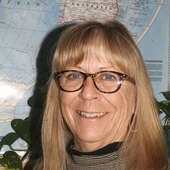More from the Omaha Daily Bee
Friday, July 13, 2018
These news items came from the Omaha Daily Bee, a large amount having been written by the “correspondent” I mentioned in my last article. He apparently rode the train to it’s final stop, which in the beginning was Indianola.
“The B & M line was finished to Indianola on May 1. A station house, terminal facilities, and stock yards are now being erected, and trains will be begin running to Indianola over the extension about the 25th.” May 15, 1880.
July 27, 1880: “Indianola will build a $400 brick school house by subscription. The money is nearly all raised.”
“The stock yards at Indianola are large enough to accommodate four thousand head of cattle.” July 13, 1880.
September 20, 1880: “An election in Red Willow County has been ordered to see if $1500 bonds shall be voted in aid of the bridge across the Republican at Indianola.”
“It is generally understood among railroad men that the B & M (railroad) will push their road west from Indianola this fall and winter, should the weather prove favorable. The large piles of iron and ties that have been accumulating at Lincoln for months will soon begin to move.” September 23, 1880
December 21, 1880: “A citizen of Indianola killed 13 deer out of a drove of 17, one day last week, while hunting on the Stinking Water (creek). By the accidental discharge of a gun, a son of Mr. Loomis of Indianola was seriously wounded in the breast and right arm.”
November 18, 1880: Homestead land is still found in the upper part of the Republican valley, and notwithstanding the severe experience of many, settlers in this portion of the frontier, most of the brave, sturdy men who have ventured so far in the wild plains, hang with true patriotic grit to their new homes. For the progress and development of this fast-growing commonwealth, as much credit is due the indomitable pluck of and courage of her pioneers as to any other agency. The eastern papers have misrepresented the condition of the settlers in the Republican Valley. That pestilence and starvation have taken possession is a malicious falsehood. There is not even a shadow of excuse for such a report; for most of the people will pass their first winter here almost, if not quite, as comfortably as have in other years their predecessors.”
This very lengthy article continues with: “The towns of the valley are steadily but slowly growing. Indianola has been having her boon since stirred by the first engine whistle in May last. Over 400 cars of cattle have been shipped from here already, and the shipping season has not closed. The B & M has just completed a round house with one stall in Indianola. They have also built one in Red Cloud with three, and one in Hastings with six stalls. These indicate what points answer the present needs of the company but are not regarded as settling the division terminal of the road.”
Finally: “As is always the case when a railroad pierces the old buffalo range the settlers are furnished a new industry, which last one year, that of gathering the bones of the animals which lie bleaching on the plains. The bones are picked up by the wagon load and hauled to town for sale, just the same as any product of the soil. C. D. Cramer, of Indianola, has purchased eight hundred tons of those bones this fall at an average cost of $8 per ton.”
In the August 1, 1881 issue of the same paper came a business directory of Indianola some of which were: “Tom Quigley, Billiard Hall; C.S. Quick, General Merchandise; V. Franklin, General Merchandise; A. M Blakesley, Blakesley House; T. H. Barnes, Flour and Feed Store; L. F. Duffy and S. L. Greene, Druggists; I. K. Waterbury, Watchmaker and Confectioner; Martin Anderson, Blacksmithing and Wagonmaking; J.S. Phillips, Carpenter and Contractor.”
I will be attending the Indianola Alumni Banquet for the first time this August and am excited to go. I wish that I could retrieve the Big Chief tablet that E. P. Baruth had penciled his remarks about early Indianola in when he was preparing for one of his many historical speeches, so I could give it to the people in Indianola wanting to start a museum. One should learn to not lend out things.

